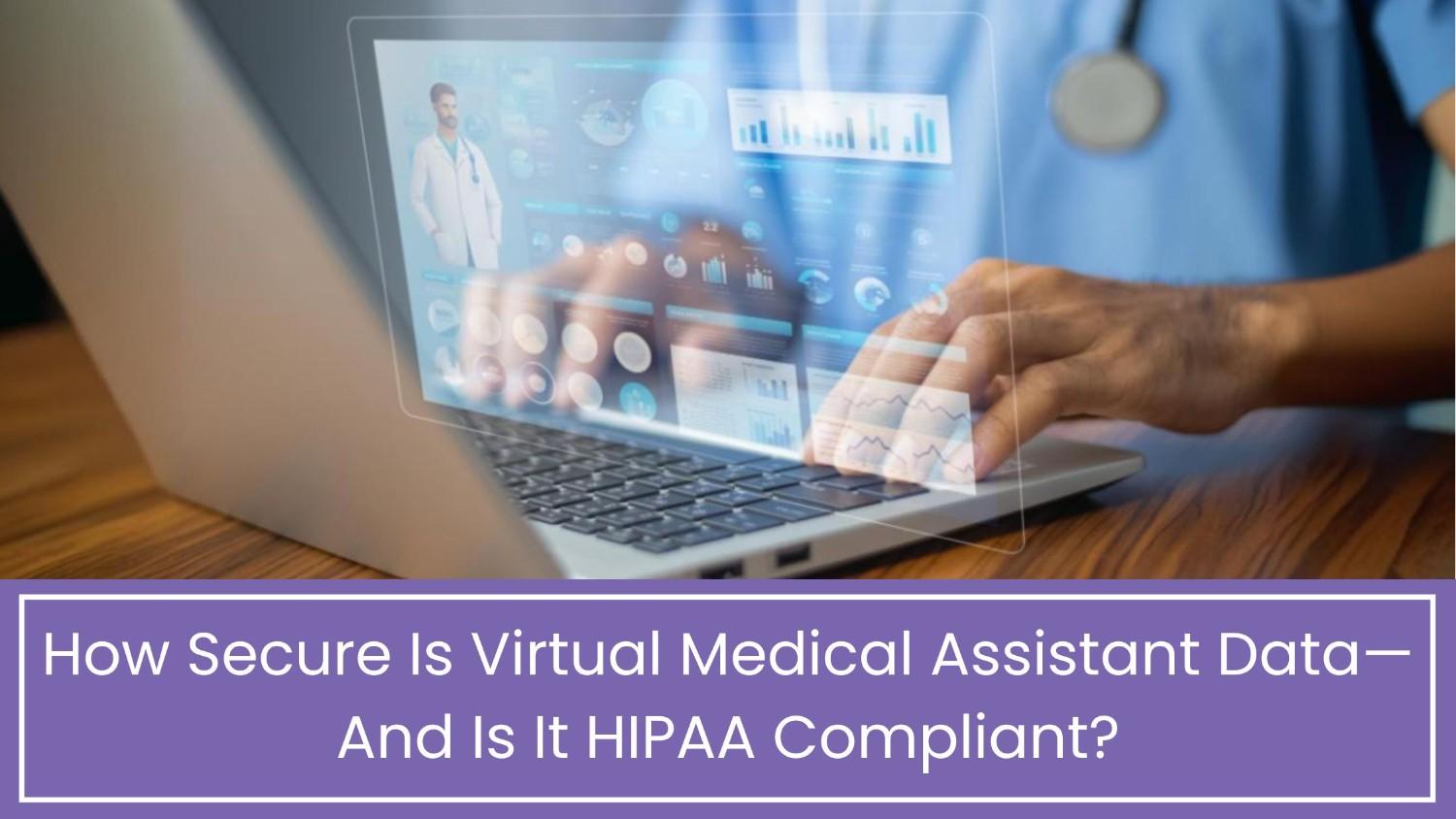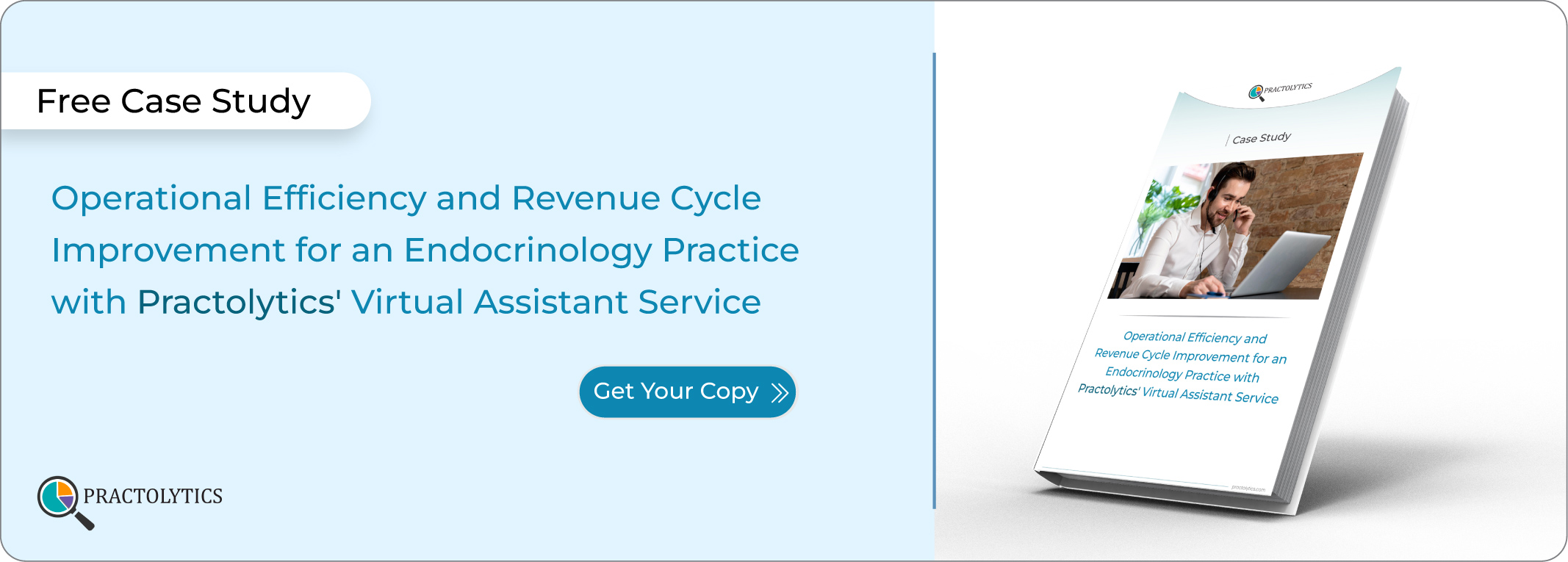How Secure Is Virtual Medical Assistant Data?
How Secure Is Virtual Medical Assistant Data? Although virtual medical assistants streamline essential healthcare tasks such as scheduling, medical billing, and patient support remotely, concerns about data security remain significant. This guide simplifies the issue by outlining key compliance steps for providers, revealing common security vulnerabilities, and explaining how HIPAA regulations specifically apply to VMAs. Discover proven data protection practices like encryption, regular audits, and staff training. Additionally, explore the 2025 security updates and learn how Practolytics helps healthcare teams implement VMAs safely without compromising patient confidentiality or trust.
Table of Contents
How Secure Is Virtual Medical Assistant Data—And Is It HIPAA Compliant?
In this radically shifting digital world, VMAs are increasingly leveraged by healthcare groups. They may be remote workers or AI tools and are responsible for billing, appointment scheduling, patient calls, and records. But its data protection is indisputable. Crucial query: Is the data secure? Do VMAs adhere to HIPAA regulations? This article outlines how providers can leverage VMAs without the risk of breaches while addressing upcoming trends, issues, and other safety measures.
Why This Matters—The Stakes Are High
Patient health information (PHI) is information about a private company. It constitutes medical history, insurance, personal information, and treatments. If PHI is disclosed or leaked, people or authorities responsible could be at serious risk of fraud and identity theft.
Data breaches in healthcare are increasing rapidly. In 2024, 133 million records were made public as a result of consistent breaches that reached 725 attempts, according to the U.S. Office for Civil Rights. Most of these came from insiders and hackers.
U.S. law necessitates VMAs who manage PHI to adhere to HIPAA guidelines. Penalties, legal action, and reduced patient confidence could result from a violation. Keeping PHIs private is non-negotiable.
What is HIPAA?
Four crucial business rules for virtual medical assistant services (VMAs) are contained in HIPAA:
- Privacy Rule: Controls the sharing of medical data
- Security Rule: Preserves digital health information
- Breach Rule: Requires that violations be reported
- Enforcement Rule: Penalties for third-party handlers
“Business Associates” is the term that refers to VMAs who handle patient data. They must sign the Business Associate Agreement (BAA) with hospitals or clinics. It outlines the breach implications, data use restrictions, and security measures. VMAs risk heavy penalties, legal consequences, and reputational harm if they break HIPAA guidelines.
Are Virtual Medical Assistants Safe and Compliant with HIPAA?
Yes, but only after thorough preparation, well-defined guidelines, and frequent inspections. The following are important steps and hazards to control:
Crucial Actions for Safe Work
Secure Data
Encrypt all data, both offline and online, using robust tools (such as AES-256). This prevents undesired viewers.
Safe Remote Entry
Virtual helpers must use secure tunnels like VPNs or private portals. This protects data in transit.
Strict Entry Limits
Require extra checks beyond passwords—like text codes or app approvals. Give only the data access each job needs.
Watch All Activity
Record every data touch or change (who, when, what). This spots problems or strange actions fast.
Routine Health Checks
HIPAA rules demand regular risk scans. Find weak areas—old software, policy holes—and patch them.
Training & Policies
Virtual assistants—human or AI—need regular HIPAA training. Cover privacy basics, phishing risks, patient data handling, and incident plans. Keep skills fresh with updates.
Business Associate Agreement (BAA)
Always sign a BAA with your VA provider. It defines duties, actions, breach steps, liability, and audit rights. No BAA? Major compliance risk.
Data Minimization
Share only essential data. Restrict access when full patient details aren’t needed. Less exposure = lower risk.
Backup & Recovery
Store encrypted backups securely. Have a clear recovery plan to restore data fast after loss or damage.
AI Protections
For AI assistants: Enforce policies, clean data flows, and lock audit logs. Experts advise combining access controls, content filters, and unchangeable logs for healthcare safety.
Potential Risks and Weak Spots
Even with protections, risks still exist:
Human error
Mistakes like sending files to the wrong people or losing data cause most breaches.
Weak tech
Personal devices without antivirus software, firewalls, or updates create openings.
Old software
Outdated systems with unpatched flaws invite attacks.
Poor oversight
Not checking logs means problems go unseen.
False compliance claims
Some tools claim HIPAA readiness but skip safeguards – recent alerts confirm this gap.
New rules
2025 standards require encryption, patching, and multi-factor checks due to ransomware threats.
Vendor risks
Non-compliant partners (telehealth/AI tools) expose you through their weaknesses.
Conclusion: Yes—VMAs Can Be Secure If Done Right
Virtual medical helpers—real people or AI—can follow HIPAA rules safely. But you need strong safeguards, regular checks, and clear contracts. Skip these, and you risk data leaks, heavy fines, lawsuits, and broken patient trust.
Key points:
- HIPAA rules cover everyone dealing with patient health details, even virtual assistants.
- Use strong security: encrypted data, strict access limits, activity records, staff training, and regular risk reviews.
- You must have Business Associate Agreements (BAAs) in place—it’s the law.
- Question any “HIPAA-compliant” promises without solid proof.
- Keep current: Rules are getting tougher with more enforcement.
- For AI tools, verify they follow privacy rules, scrub sensitive data from outputs, and track all actions.
- Stay safe through ongoing checks, tests, and updates.
If you’re adding or scaling virtual assistants, Practolytics helps healthcare teams do it right. Our assistants know HIPAA inside out. We use encrypted systems, keep audit trails, and sign full BAAs. With our tools and oversight, your staff focuses on patients—while data stays safe.
Choose Practolytics to upgrade your virtual assistant work securely. Contact us today to see how we protect your data and boost your practice.
Read More – From Chaos to Efficiency: A Small Practice’s Journey with a Virtual Assistant
Talk to Medical Billing Expert Today — Get a Free Demo Now!






